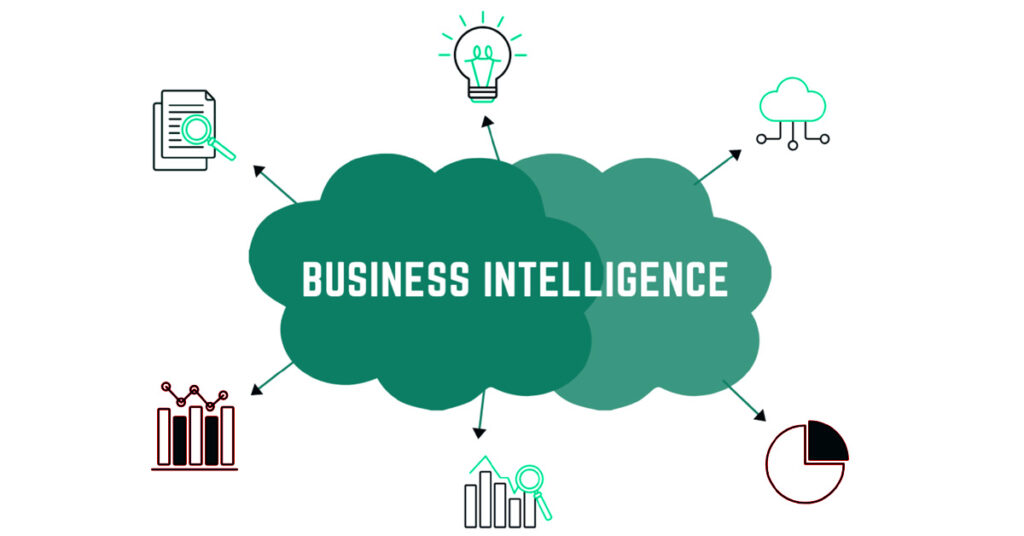Companies are increasingly turning to business intelligence managed services to gain actionable insights from their data. These services offer a comprehensive solution to help organizations harness the power of data analytics effectively. Let’s delve into the multitude of benefits these services bring to the table.
1. Enhanced Data Security
Data security is paramount in the digital age, especially with the rising number of cyber threats. Business intelligence managed services provide robust security measures to safeguard your sensitive information. From encryption techniques to proactive monitoring, these services ensure that your data remains protected against unauthorized access or breaches.
2. Scalability and Flexibility
One of the key advantages of opting for managed services is scalability. As your business grows, so do your data requirements. Business intelligence managed services offer scalable solutions that can seamlessly adapt to your evolving needs. Whether you’re expanding into new markets or launching new products, these services provide the flexibility to accommodate your changing data volumes and analytical demands.
3. Cost Efficiency
Managing an in-house business intelligence infrastructure can be expensive, requiring significant investments in hardware, software, and skilled personnel. By outsourcing to a managed services provider, you can reduce overhead costs and enjoy a predictable pricing model. This cost-efficient approach allows you to allocate resources more strategically and focus on core business activities.
4. Access to Advanced Analytics Tools
Business intelligence managed services leverage cutting-edge analytics tools and technologies to uncover valuable insights hidden within your data. From predictive analytics to machine learning algorithms, these tools empower businesses to make data-driven decisions with confidence. By harnessing the power of advanced analytics, organizations can gain a competitive edge in their respective industries.
5. Expert Support and Maintenance
Maintaining an in-house business intelligence infrastructure requires specialized expertise and ongoing maintenance. With managed services, you gain access to a team of skilled professionals who oversee the day-to-day operations of your analytics platform. Whether it’s troubleshooting issues or optimizing performance, these experts ensure that your system runs smoothly, allowing you to focus on driving business growth.
6. Real-time Reporting and Dashboards
Business intelligence managed services offer real-time reporting capabilities, providing stakeholders with up-to-date insights into key business metrics and performance indicators. Through intuitive dashboards and customizable reports, decision-makers can monitor trends, identify opportunities, and mitigate risks in real-time. This timely information enables proactive decision-making and drives operational efficiency.
7. Seamless Integration with Existing Systems
Integrating disparate data sources and systems can be a complex and time-consuming process. Business intelligence managed services streamline this integration, enabling seamless connectivity across your organization’s ecosystem. Whether it’s ERP systems, CRM platforms, or IoT devices, these services ensure that data flows seamlessly between disparate systems, providing a holistic view of your business operations.
8. Improved Decision-making
By harnessing the power of data analytics, business intelligence managed services empower organizations to make informed decisions based on actionable insights. Whether it’s identifying market trends, understanding customer behavior, or optimizing operational processes, data-driven decision-making can drive business growth and competitive advantage. With access to timely and accurate information, decision-makers can chart a course for success with confidence.
9. Predictive Analytics for Future Planning
Predictive analytics is a game-changer for businesses looking to stay ahead of the curve. Business intelligence managed services leverage predictive modeling techniques to forecast future trends and outcomes, enabling proactive planning and strategic decision-making. Whether it’s predicting customer demand, optimizing supply chain logistics, or identifying potential risks, predictive analytics provides valuable foresight to steer your business in the right direction.
10. Focus on Core Competencies
Outsourcing business intelligence management allows organizations to focus on their core competencies and strategic objectives. By offloading the burden of data management and analytics to a trusted partner, businesses can redirect resources towards innovation, growth initiatives, and customer-centric activities. This laser focus on core competencies can drive agility, innovation, and long-term success in today’s competitive marketplace.
Frequently Asked Questions (FAQs)
How do business intelligence managed services differ from traditional BI solutions?
Business intelligence managed services offer a comprehensive, outsourced approach to data management and analytics, whereas traditional BI solutions typically involve on-premises software implementations. Managed services provide scalability, expert support, and cost efficiencies that traditional BI solutions may lack.
What types of organizations can benefit from business intelligence managed services?
Businesses of all sizes and industries can benefit from business intelligence managed services. Whether you’re a small startup looking to gain insights from your data or a large enterprise seeking to optimize complex analytics workflows, managed services offer tailored solutions to meet your specific needs.
How can business intelligence managed services help improve operational efficiency?
By streamlining data integration, providing real-time reporting, and offering advanced analytics capabilities, business intelligence managed services can help organizations optimize their operational processes, identify bottlenecks, and drive efficiency gains across the board.
Are business intelligence managed services secure?
Yes, business intelligence managed services prioritize data security and employ robust measures to safeguard sensitive information. From encryption and access controls to regular security audits, managed services providers implement comprehensive security protocols to protect against cyber threats and data breaches.
What role do analytics tools play in business intelligence managed services?
Analytics tools are the backbone of business intelligence managed services, enabling organizations to extract valuable insights from their data. These tools encompass a wide range of functionalities, including data visualization, predictive modeling, and machine learning, empowering businesses to make data-driven decisions with confidence.
How can organizations measure the ROI of business intelligence managed services?
Organizations can measure the ROI of business intelligence managed services by tracking key performance indicators (KPIs) such as revenue growth, cost savings, and productivity improvements. By quantifying the impact of data-driven insights on business outcomes, organizations can demonstrate the value of their investment in managed services.
Final Wording
Business intelligence managed services offer a myriad of benefits for organizations seeking to harness the power of data analytics effectively. From enhanced data security to improved decision-making and scalability, these services empower businesses to unlock actionable insights and drive strategic growth initiatives. By partnering with a trusted managed services provider, organizations can gain a competitive edge in today’s data-driven marketplace.



